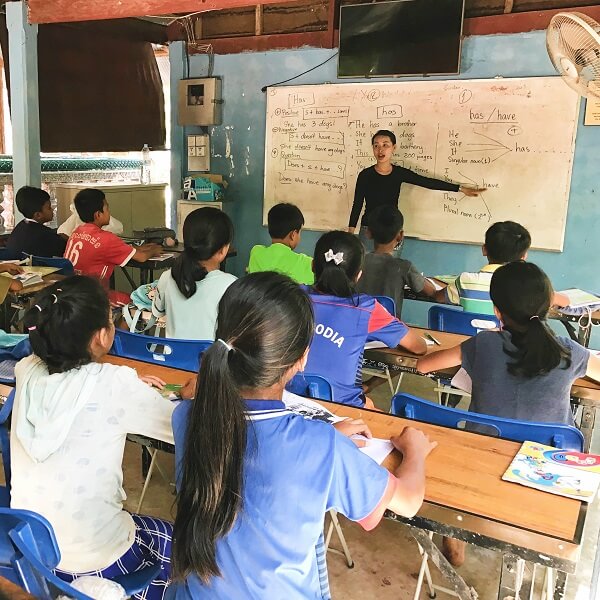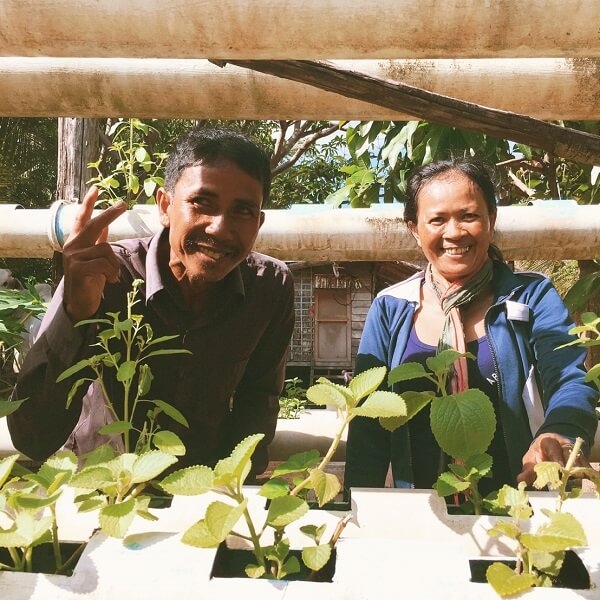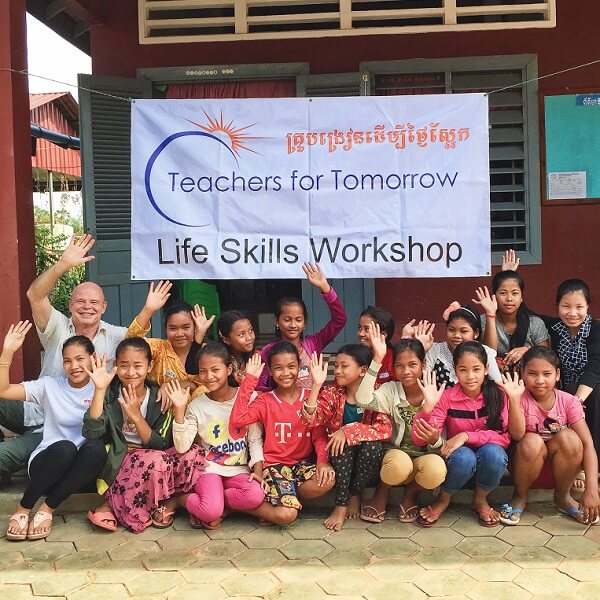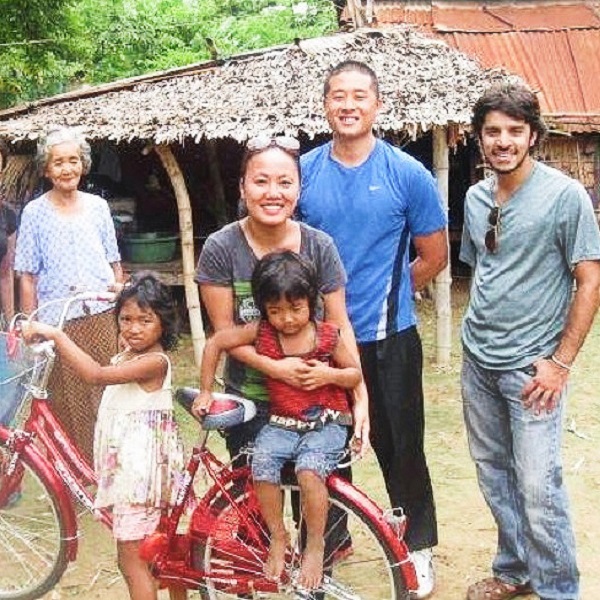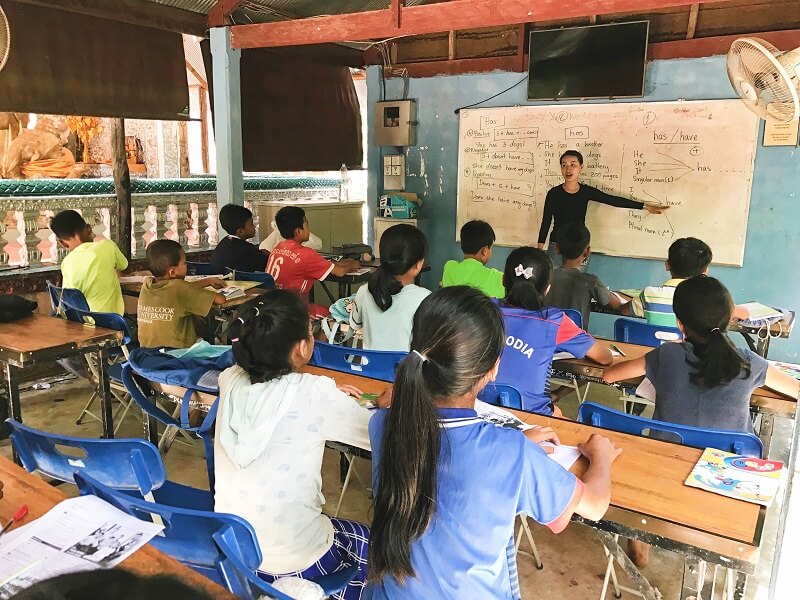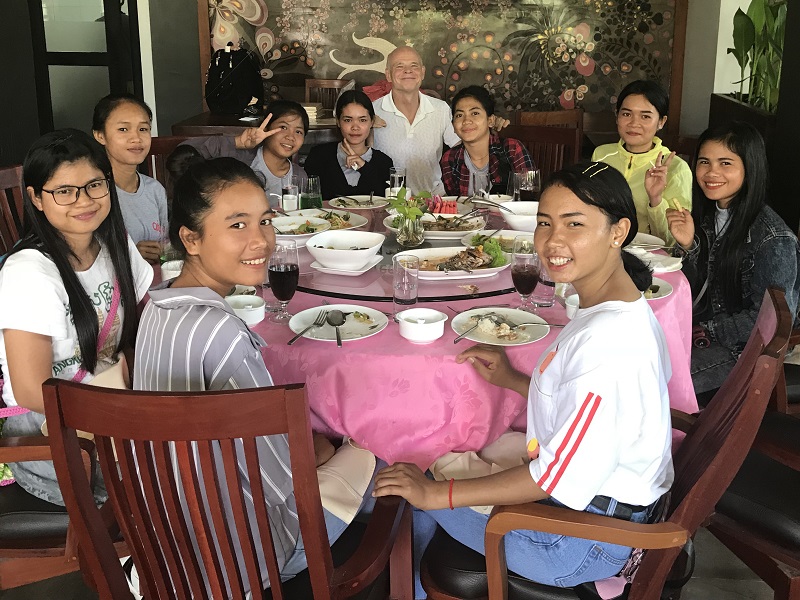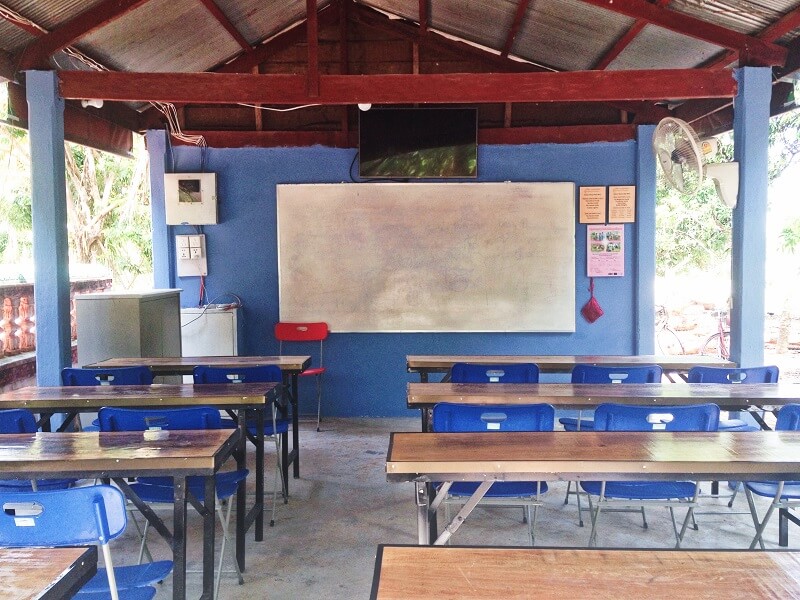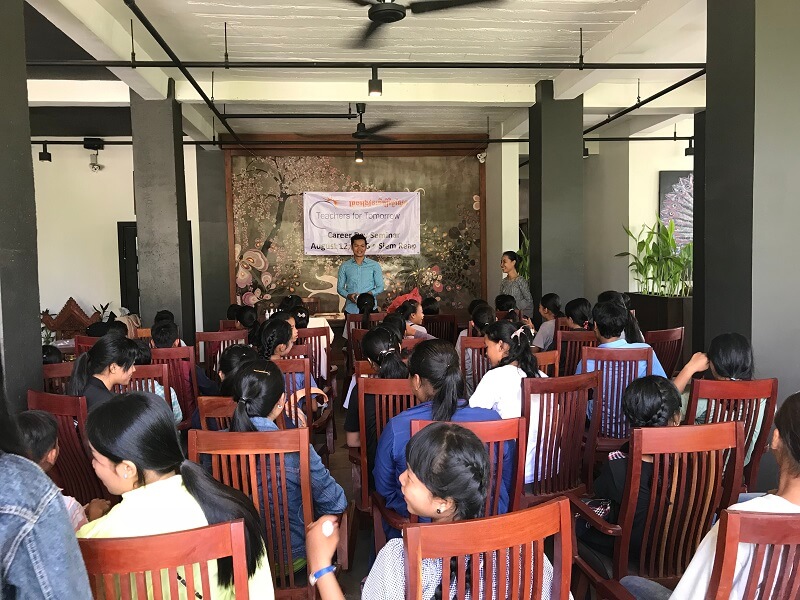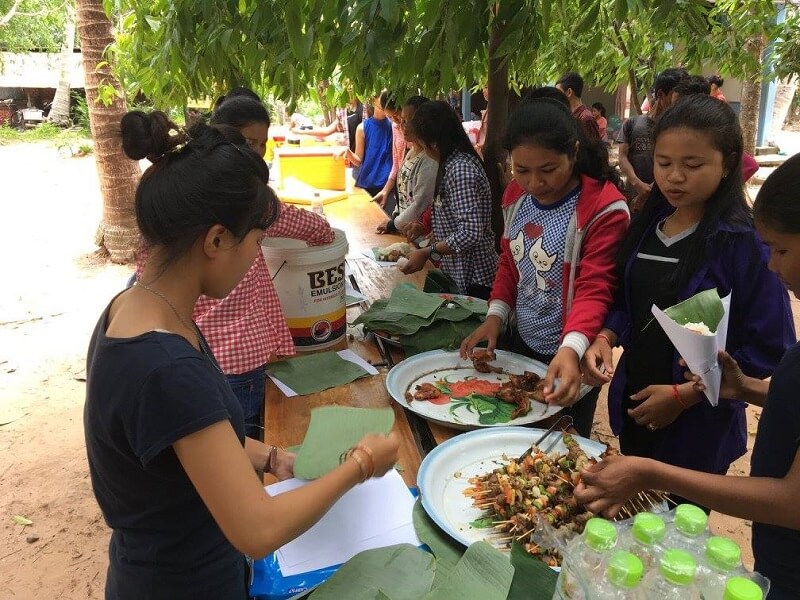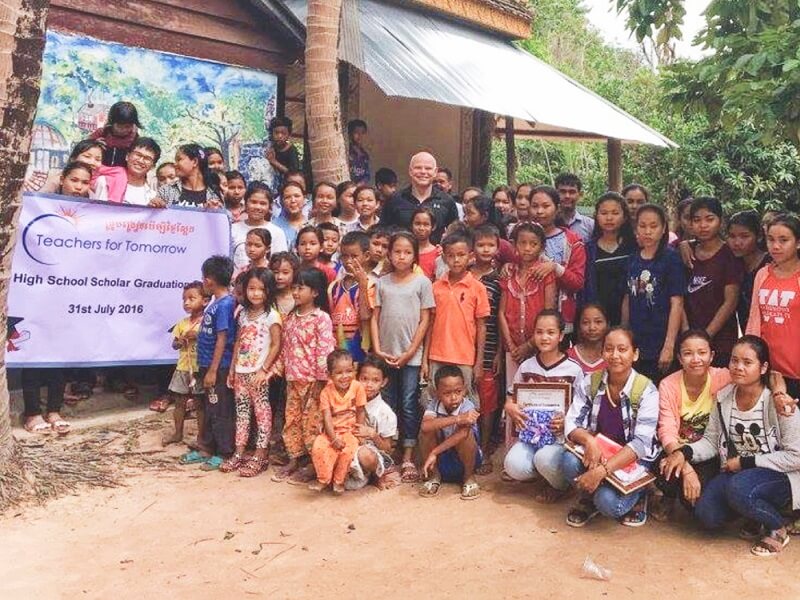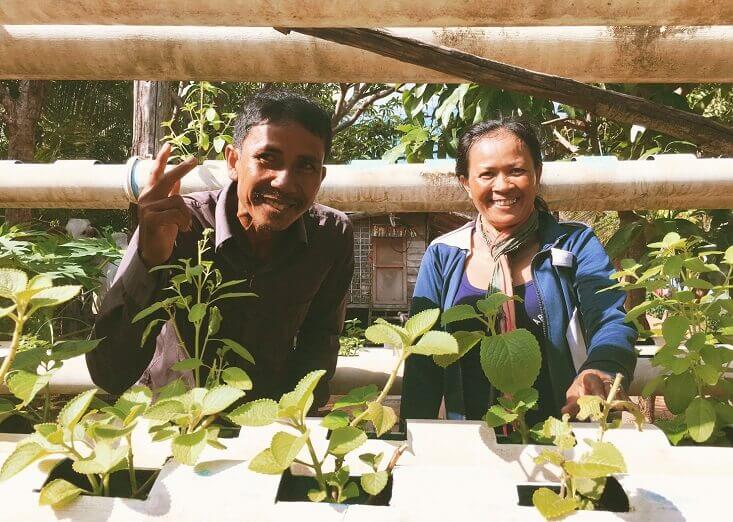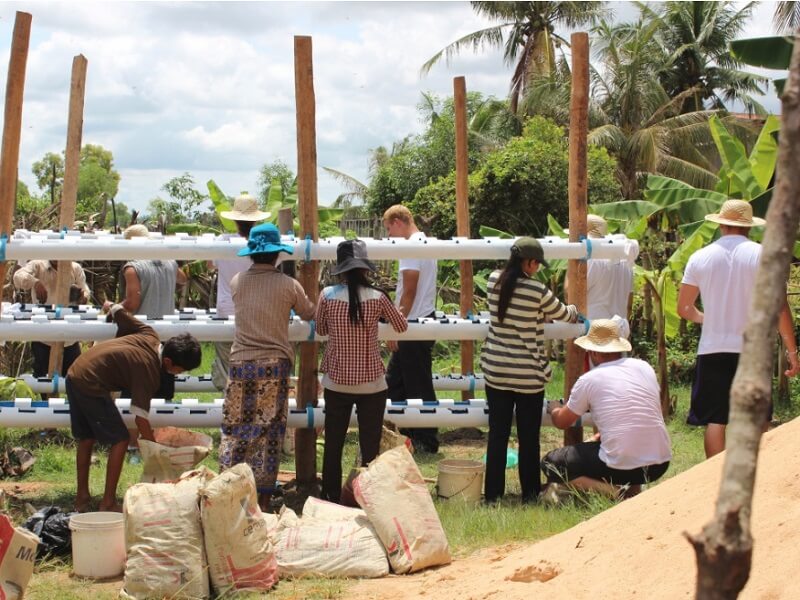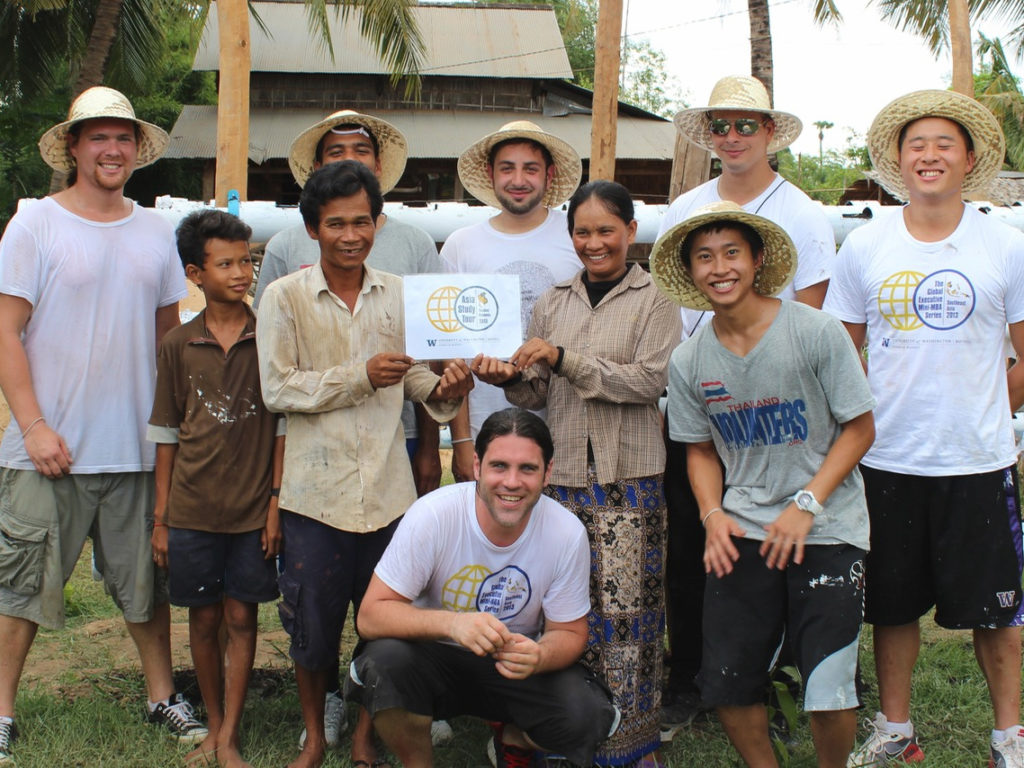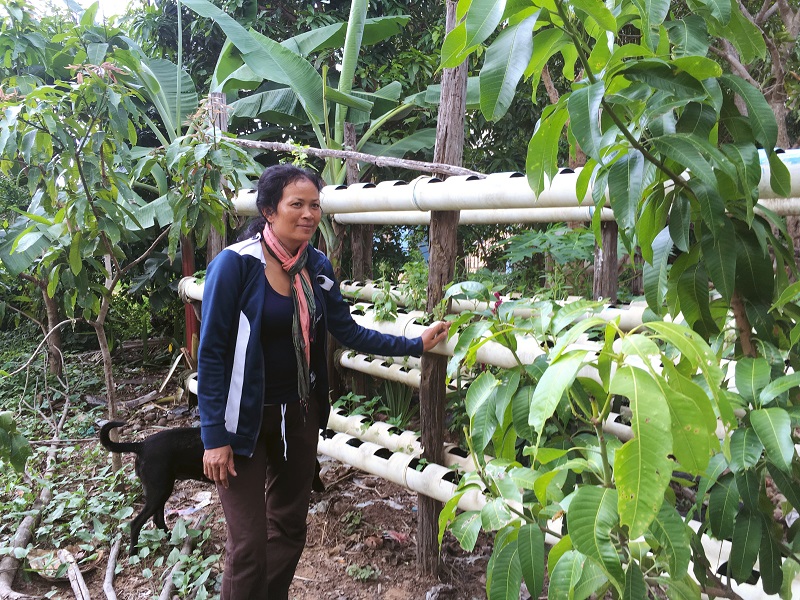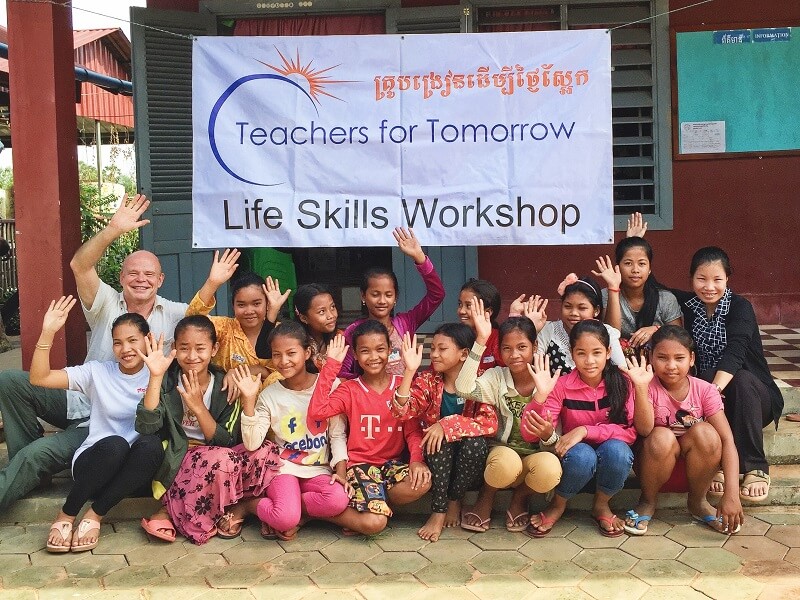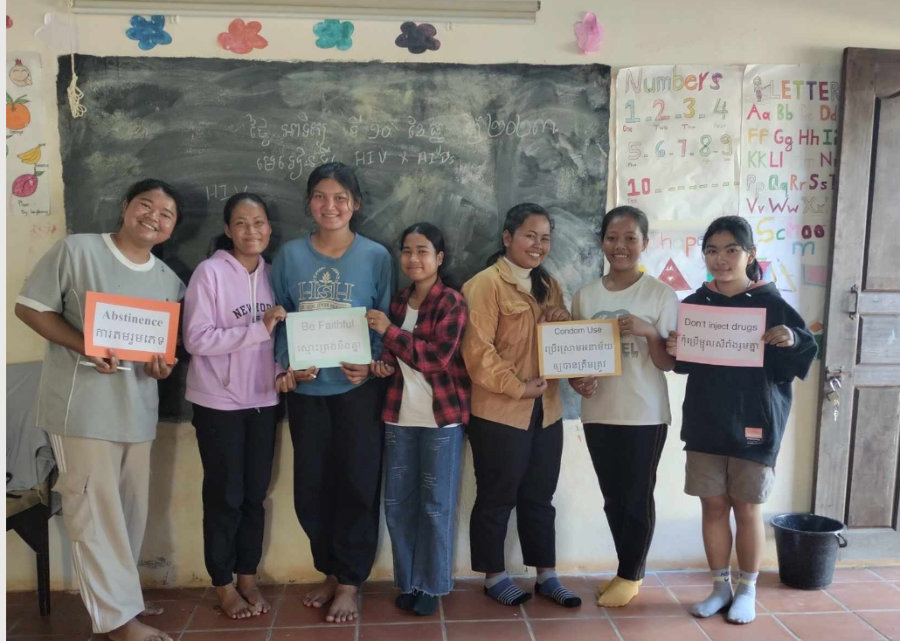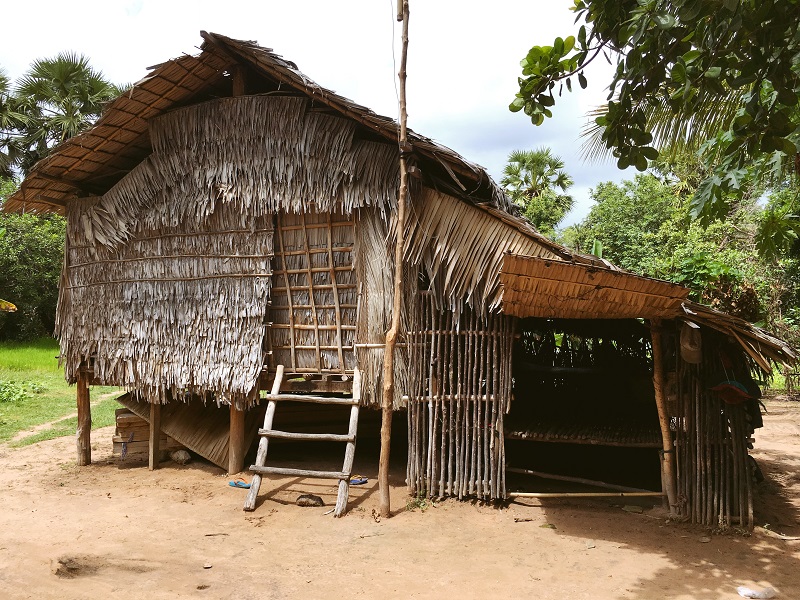In response to the poverty and education problems in rural Cambodia, Teachers for Tomorrow developed various programs to tackle the key barriers that stop young people from continuing their education or attaining a better quality of life. Over the years, we adapted activities and details of our projects to suit the evolving findings and feedback we receive from the communities.
Helping to overcome the barriers to education and support future generations of educators.
Providing families with the means to have additional income and an additional nutrition source.
Providing young people with the basic knowledge that enables them to have a better quality of life.
Supporting various types of village livelihood programs to create sustainable living in the long-term.
Educational Development
Without an education, breaking the cycle of poverty in Cambodia is virtually impossible. Many young people are swept into a life of forced labor and sex trafficking. Others rely on subsistence farming and many have no land. Large areas of the rural countryside still hide millions of unexploded land mines, deadly reminders of the country’s war-torn history.
This must change, and with your help, it will. With our English classes, scholar sponsorship, school building and teacher support programs, we hope to help ease the problems in the villages we work with.
Meet our scholars, hear their stories and learn about the hopes they have for their own lives and the future of Cambodia. You can sponsor one of these students or class activities. These young students need your support, foresight, and kindness.
Since 2018, Teachers for Tomorrow offers one promising student a ten-month scholarship to study at the Ecole d’Hôtellerie et Tourisme Paul Dubrule hotel management school in Siem Reap, Cambodia. Eligibility Open to Teachers for Tomorrow students who: Are female and are at least 17 years old by October 01, 2018 Have a good command of English […]
Help Us Build More Solar-Powered Centers When our new solar learning center is completed, classes will no longer be taught in a small open structure that is little more than a concrete slab with a roof overhead. Because the area lacks electricity, the students and teachers have relied on a 12-volt car battery and fluorescent […]
Donate to the ongoing initiatives in the 'Educational Development' Program
You can help us provide an English class to a village. The skill will help students to get better jobs and earn a better income for their families.
You can click the payment button below and choose the number of months that you would like to continue your support.
1 Month of English course costs 30 USD per class/village.
Read here for more information.
You can help us provide scholarship to the candidates who have promising records and are committed to giving back by mentoring other students.
The scholarship will provide tuition, uniform, accident and health insurance, lunch, study kit, all training materials, and site visits. If the student does not live in Siem Reap, the scholarship will also pay for a room and a daily meal allowance for the ten-month period.
Read here for more information.
Many of our target villages either have no facilities to hold a class or have only small open structures that are little more than a concrete slab with a roof overhead.
We are establishing more of our solar-powered Community Education Centers (CEC) that will provide students with a study center furnished with solar-powered lighting, proper ventilation, better furniture, and an AV system.
Find more information here.
Your donation can help buys books and supplies for a student, and help support them to be in school.
Village to Table
Due to a lack of income, children must stay at home or work in the rice paddies. After various trials, we found that building a vegetable garden is an efficient means to provide additional income because the program builds on existing agricultural knowledge.
Villagers can grow vegetables they can sell and tend the gardens located at their homes. The garden also provides a supplemental nutrition source to poor families.
Though the years of working with the local communities in rural Cambodia, we found that one of the biggest challenges that discourages parents to send children to school is insufficient income. Lacking money, parents cannot afford education-related costs and tend to make children stay at home or work in the rice fields, where intensive labors […]
Description: These half-day exercises challenge small groups of volunteers or students as they work together toward determining the optimal way to build a vertical vegetable garden. A key element of these exercises is taking social responsibility for what the families receive, the impact the groups will have on the villages, and cultural sensitivity when coming […]
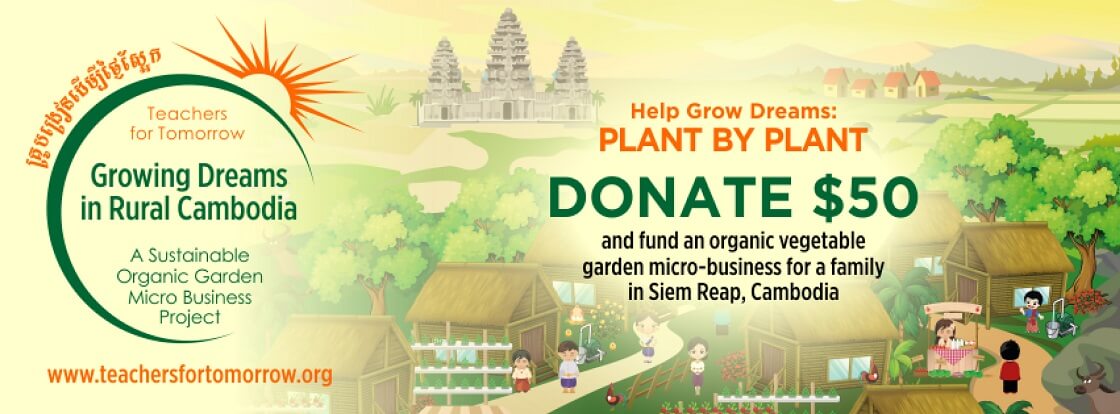
Donate to the ongoing initiatives in the 'Village to Table' Program
For this model, you can help to build vegetable gardens that families who are in difficult situations and in need of your support will receive. We will build a set of four raised garden boxes with seeds, fertilizers, and staff coordinators to give training and assist the family. You can click the button below and choose a donation option from the following:
- Donate $25 USD
- Donate $50 USD
- Donate $100 USD
More Information here
For this model, an organization, a hotel or a restaurant can sponsor to receive the produce directly from the village by choosing a donation option from the following:
- $30 a month for one box
- $50 a month for two boxes
- $90 a month for four boxes
For this model, an organization, a hotel, or a restaurant will pay a set amount per kilogram for different types of produce. These prices will be set at about 30% higher than the normal market price. The logic behind the discount is because of savings we will receive based on administrative time and logistical/transportation costs. The amount will also contribute to the families who are part of our village support program.
Please send email to James@teachersfortomorrow.org if you would like to support this program.
Life Skills Training
Breaking the cycle of poverty requires more than an academic education; there are certain life skills that will help young people and their families make choices that allow them to pursue a better quality of life. Teachers for Tomorrow currently runs a series of training seminars covering vital topics such as reproductive health, home economics, HIV/AIDS and the dangers of drugs, alcohol, and human trafficking.
We currently run a series of life skills training seminars for twenty to thirty adolescent girls each year in village areas around Siem Reap. Taught by two teaching staff, the monthly classes cover vital topics such as disease prevention, safety and hygiene, reproductive health, home economics, HIV/AIDS, and the dangers of drugs, alcohol, and human […]
Donate to the ongoing initiatives in the 'Life Skill Training' Program
A donation of only $30 helps operate these life skills classes for a month, or $360 per year.
Please click the button below to make a donation and have your name on our Wall of Honor plaque.
More information here
News from the project
Livelihood Support
Despite the large number of tourists visiting Siem Reap, the province outside of the central area still remains one of the poorest in the country with a significant amount of population living under the poverty line of roughly $0.75 USD per day. Through the years of working with the rural villages around Siem Reap, we found we needed a holistic approach to create sustainable change. In our livelihood support program, we help provide additional means to the family in need to give them a better life.
Approximately twelve miles from the small but bustling city of Siem Reap, Cambodia, is a small village called Kouk Kreul, the first village Teachers for Tomorrow sponsored in 2013. Made up of 108 extended families and 576 residents, Kouk Kreul village is a rice farming community where most residents raise just enough rice for their families […]
Donate to the ongoing initiatives in the 'Livelihood Support' program.
Due to an insufficient number of government-provided facilities, villages are often deprived of basic access to information, education, health care, or economic activities because of the long distance from school or government center to their homes.
Giving a family a bicycle means more than a ride, it means giving children a chance to go to school, receive their vaccine shots, or an opportunity for the family to sell their produce at market.
A small donation could change their lives, and you can help them by clicking the button below.
In rural areas, access to basic healthcare is often limited. Communities also lack the means of transportation to healthcare centers. These Hygiene & Safety Kits, along with provided knowledge on how to use them, could save the families from health risks and small emergencies that otherwise could lead to more severe problems.
You can help donate to buy these kits by clicking the button below.
Build a water well
In several areas, clean water is a source that is hard to come by. Access to clean water is essential to their health, sanitary and income since water could be used as a means to grow vegetables or make different types of products for sale.
Building a water well sometimes requires a large amount of fund to dig a deep well that could reach the underground level which provides enough clean water for the village.
Please email James@teachersfortomorrow.org if you would like to support this program.
By sponsoring a village, a donor or group of donors can provide the following essential services to approximately 25 families and about 125 residents per year which include:
- Daily English classes for 20 children
- Four water wells
- Five vegetable gardens
- 12 bicycles
- Monthly life skills courses for 20 teenagers
- 20 hygiene and safety kits.
Monthly reports will be sent to the donors about the development and progress of the village.
Note: This is an excellent option for families, school projects, and employee groups.
Donation: $8,000 for two years of sponsorship.
Please email james@teachersfortomorrow.org if you would like to sponsor a village.
